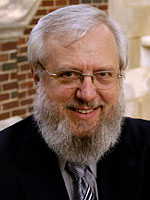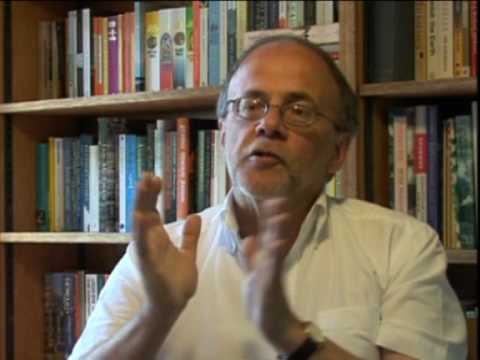Tag: 05 Scripture
“He opened up to them everything in the Scriptures concerning himself” (Lk 24, 27b): How can we recover Christological and Ecclesial habits of Catholic Bible Reading? (Alison, 2007)
I propose to do two things with you this evening. The first is to read a passage of Scripture, in the rich sense of “offering a reading” of it. And the second, if time and your patience permits, is to draw out some of the consequences of the method which I shall have used in order to come up with this reading. I’m aiming at making a contribution to something which I intuit as being important for the future of our Catholic life: the recovery of the habits necessary for a reading of the Scriptures which is both Ecclesial and Eucharistic. The route to this recovery winds through the filling out of our sense of how it is that the Anointed One of God, the “Χριστός”, makes available for us a fulfilled reading of the texts which we have received.
Reading Scripture as a Coherent Story (Bauckham, 2003)
From “The Art of Reading Scripture”.
The church’s reading of Scripture has usually presupposed its narrative unity, that is, that the whole of the
Bible – or the Bible read as a whole – tells a coherent story. Any part of Scripture contributes to or illuminates in some way this one story, which is the story of God’s purpose for the world. If Scripture does indeed tell the
story of God’s purpose for the world, then we should certainly expect to find unity and coherence in it. But the
idea of reading Scripture as a unified narrative seems problematic from at least two very different perspectives: (1) that of biblical scholars for whom the great diversity of the biblical texts makes the claim of unity inconsistent with the nature of the Bible and (2) that of postmodern critics for whom a unified narrative would establish
Christianity as the oppressive metanarrative that historically it has very often been. This essay begins with
a section that responds mainly to the first perspective. The argument about the Bible is then interrupted by a critical consideration of the second perspective (the postmodern critique of metanarratives) in order to resume,
in the third section, a discussion of the biblical story with some conceptual tools provided by the postmodern approach.
Macbride Sermon on the Application of Messianic Prophecy (Bauckham, 2003)
The subject of the Macbride University Sermon is described as “the application of the prophecies in Holy Scripture respecting the Messiah to our Lord and Saviour Jesus Christ.” There have been times when Christians have attached great evidential value to the fulfilment by Jesus of Old Testament prophecies of the Messiah. They have wanted to argue not only that Jesus is shown to be the expected Messiah by the exact correspondences between the prophecies and their fulfilment in Jesus, but even that the fulfilment of these prophecies in Jesus is a kind of demonstration of the truth of Christianity. The fulfilment proves at the same time both that the prophecies were inspired by God and that Jesus was the Messiah that God himself sent. This kind of apologetic appeal to messianic prophecy is less often heard today. I think this must be at least partly due to the influence of biblical scholars who have insisted on a historicizing kind of exegesis that tries to read the prophecies as they would have been heard at the time they were written, and very often finds that this differs considerably from the way the writers of the New Testament read them when they interpreted them as referring to Jesus. I sense that New Testament scholars are sometimes a little embarrassed by the gap that seems to open between the historical meaning of the Old Testament texts and the way they were read by New Testament Christians. They explain in a matter-of-fact manner the way New Testament writers interpreted the Old, but they refrain from commenting on its validity.
What Role Ought the Bible to Play in Christian Ethics? ‘Developing a Hermeneutic’ vs. ‘Immersion in Tradition’ (Brian Brock, 2007)
The contemporary rediscovery of ancient sources of biblical exegesis makes an important contribution to the renewal of Christian ethics. This rediscovery is motivated by a dissatisfaction with modern critical commentaries on Scripture and by a desire to re-engage with the biblical text itself, allowing it to speak to our contemporary ethical challenges in fresh and surprising ways. The article sets out the key objectives and contributions of this new approach to biblical ethics. The heart of the challenge it brings is to encourage us to move beyond a preoccupation with questions of hermeneutical methodology and towards a properly theological appreciation of the role of ʹtraditionʹ in our ethical reading of Scripture.
Made Strange by the Word in a Technological Age (Brian Brock, 2003)
FOR MOST OF US THERE IS SOMETHING GENUINELY EXCITING ABOUT NEW TECHNOLOGY. What child is not viscerally attracted to the gleaming rows of cars at a new car show, or amazed at the world to come promised in science fiction? Even our adult imagination boggles at what is being made possible today by technology, a fact marked by the stories of new hi-tech feats that now regularly appear on the front pages of our newspapers.
Almost all of us are used to having our attention grabbed by new technologies. We are part of a social milieu in which a host of social and cultural forces have succeeded in linking these developments with excitement, a sense of exploring the unknown, a touch of entrancing menace, and aesthetic progress.
But, in this general excitement, have we directed attention away from the miracle at the heart of the universe? In asking about the relationship between the Bible, technology and human identity, the Bible presses us to ask this question. It does so by indicating that human identity can be understood as being formed by that which excites it, because where our interest is engaged, “there will your heart be also” (Mt 6.21).





